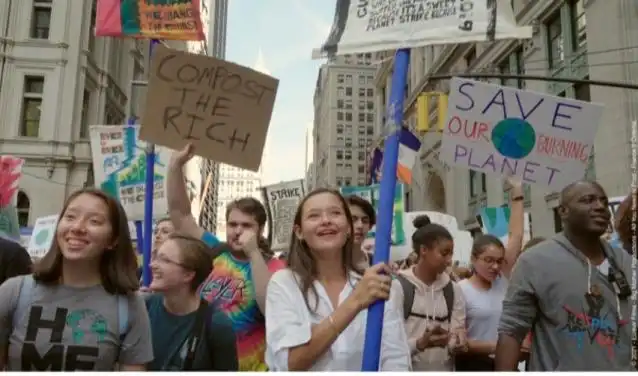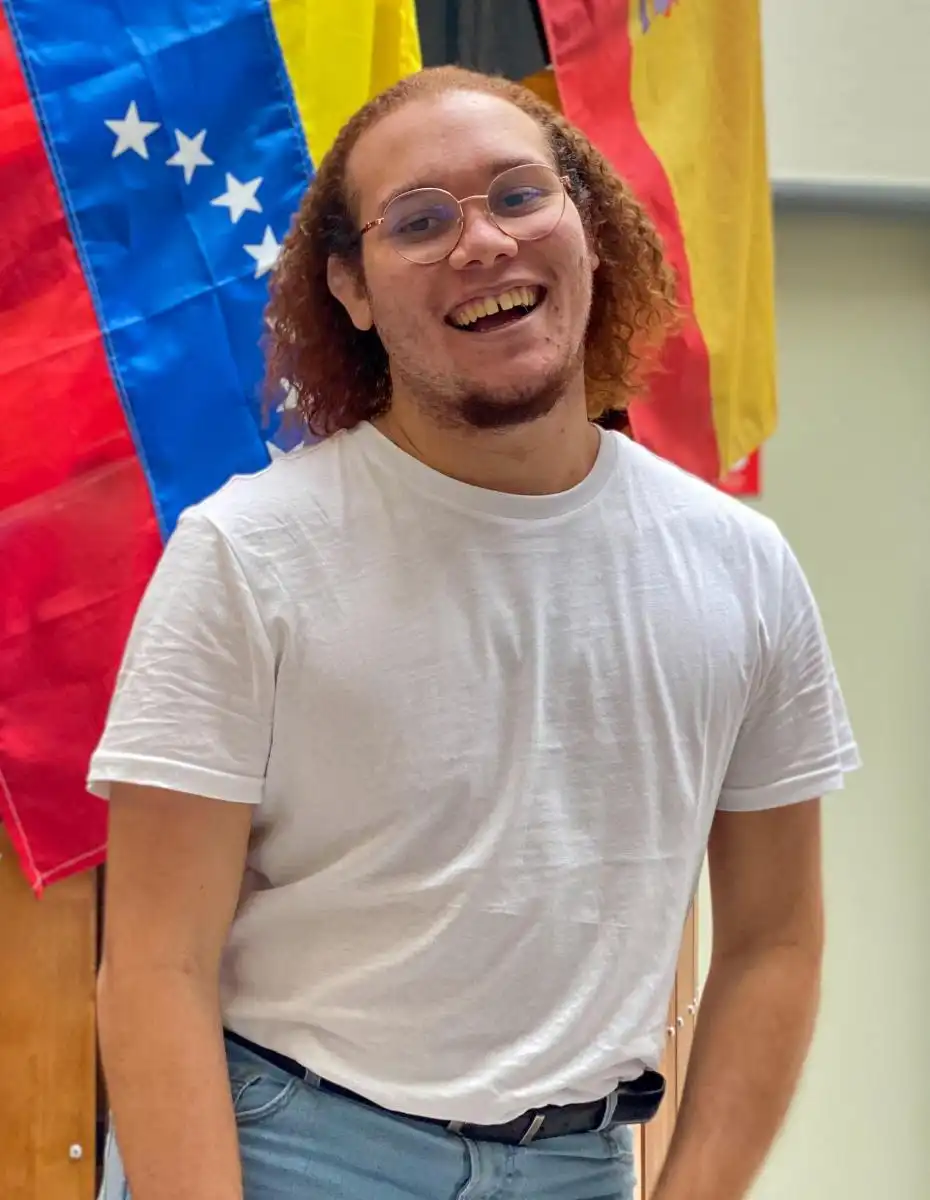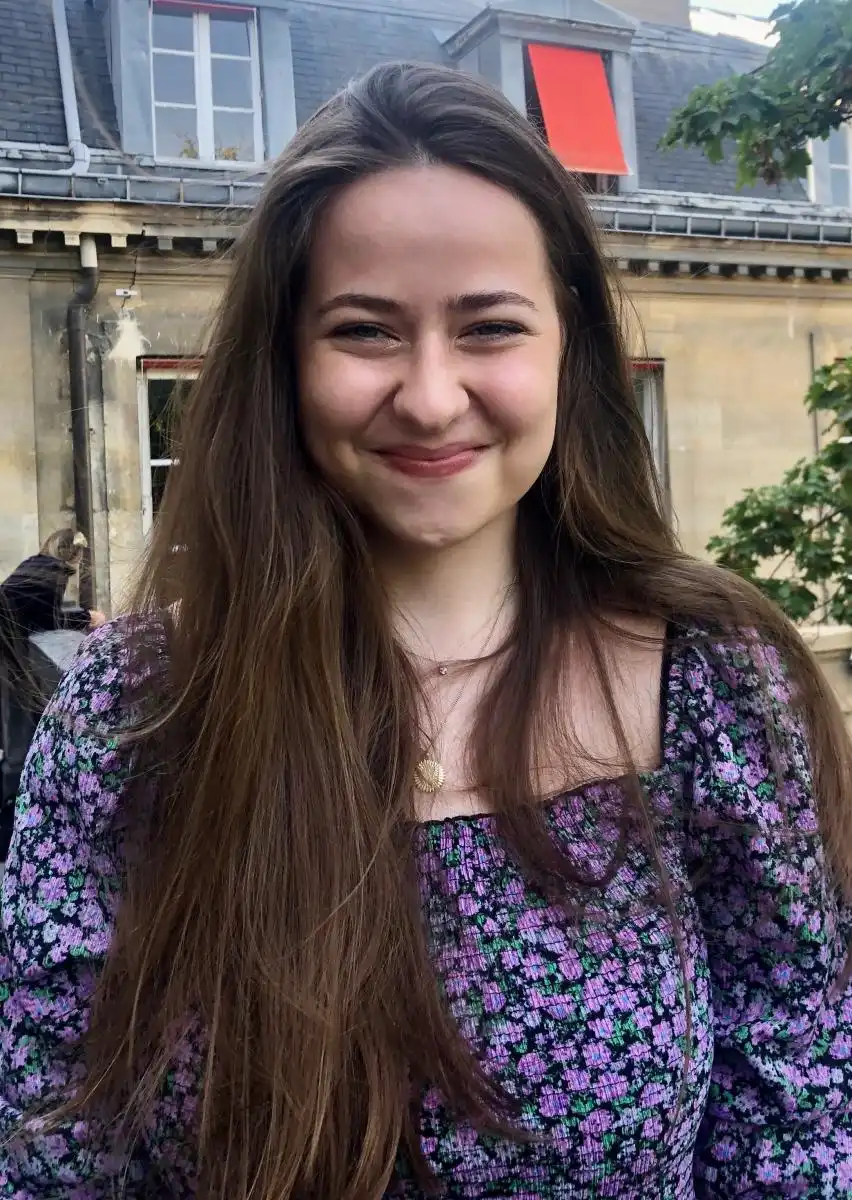Home>Bigger Than Us: A Film Screening in the Context of the Civic Learning Programme
16.02.2022
Bigger Than Us: A Film Screening in the Context of the Civic Learning Programme

In the context of Sciences Po’s Civic Learning Programme, Bigger Than Us, a long-form documentary that follows the journey of seven young people working for the good of the planet and society, was recently screened on Sciences Po’s campuses. Find out more about the goals and context of this screening, as well as the thoughts and reactions of those in attendance.
Working for the Common Good
Bigger Than Us, winner of the 2022 César award for “Best Documentary” follows the stories of seven young people as they fight for a better, more just world. From education for refugees, to environmental justice to freedom of speech, the causes championed by this diverse group of young people may be wide-ranging, but each of them is invested in bettering their communities and working for change on both a local and global level. Although these seven young people come from countries as wide-ranging as Malawi, Brazil, and the United States, they are nevertheless linked by a deep commitment to their causes, striving toward lasting change.
As Masters student on the Paris campus Clémence Vitti noted, "The seven stories have a common root cause—they are the result of a world in which capitalist interests continue to widen socio-economic inequalities to the detriment of the most at-risk communities." In the context of the Civic Learning Programme, a social action programme and key part of Sciences Po’s Undergraduate curriculum, students are encouraged to act in accordance with principles of solidarity and social engagement to strive towards a better society. Students work against the situation described by Clémence Vitti, instead investing in a project for the common good that is conscious of current social realities. As the Dean of Sciences Po’s Undergraduate College noted in the following video, Bigger Than Us is “a visual project that depicts the Civic Learning Programme in images”—a programme that is “an essential and ethical part of this Sciences Po curriculum.”
A Wake-Up Call

For Cristofe Montabord, a student on the Poitiers campus, the documentary "allows students to become aware of the realities of what is happening elsewhere—realities that they would not necessarily otherwise be acquainted with. This can promote change in a student or young person's lifestyle, or even alter it completely." This change may take the form of efforts to live a more sustainable lifestyle, for example, or an awareness of refugee experiences in Europe or food security issues, which one may then use to take action in one's community.
Indeed, the goal of the screenings organized in the context of the Civic learning programme is to create opportunities for debate on social topics and to encourage discussions on major social issues. For Eva Karam, a first year student on the Paris campus, the documentary made "a significant impression” on her. As she affirms, "the choice of this film was particularly relevant to the Civic Learning Programme; it motivated us for our projects and gave us a glimpse of the meaning we might gain from them." This “glimpse” of meaning shows students what alternative futures may be possible. Ultimately, the screening of this documentary was much more than a cultural event; it encouraged concrete action, warding off the apathy and fear that so often effect people today when faced with the most complex issues in our society.
Dare to Get Involved

According to Clémence Vitti (pictured at left), the documentary was a breath of fresh air : "I found it very hopeful. I was unifying, encouraging, and positive, offering an alternative to the eco-anxiety that my generation often feels.”
Indeed, with mental health problems on the rise among young people, it is essential to find means of getting outside of the sensation of powerlessness often created by the issues most often covered by the media. Action can be taken on a local level, to then be expanded to a more national and even global level. The solution that the documentary offers, as Clémence Vitti notes, “was not to act directly from the top of the pyramid. Instead, an effective strategy mobilizes first the youth, their peers, then members of communities more broadly, traditional leaders, members of parliament, and finally, the president."
A Significant Impact
A small-scale, individual engagement that grows to a national and global level? Cristofe Montabord noted that he observed a direct influence of this documentary on the young people around him: "After the screening, first-year students came to ask me questions about their Civic Engagement and the best ways to get involved."
Clémence Vitti also found the documentary powerful, adding that it "manages to inspire an intention to act in order to no longer feel powerless.” Indeed, the film successfully inspired students—instilling the idea that their projects are feasible, useful and can have the effect of improving the world around them.
Ultimately, in the words of Eva Karam, "This documentary portrayed the experiences and struggles of activists who have succeeded in carrying out their projects even though they may have seemed unattainable. It made me aware of my capacity to act and our collective capacity to transform the world around us."
The Sciences Po Editorial Team
Find out more
- About the Civic Learning Programme
- About the documentary Bigger Than Us
- About the Undergraduate College
Open house days 2025

Virtual Undergraduate Open House day 2025
Come meet our teams and students at our campuses.
Virtual Graduate Open House day 2025
Meet faculty members, students and representatives and learn more about our 30 Master's programmes.